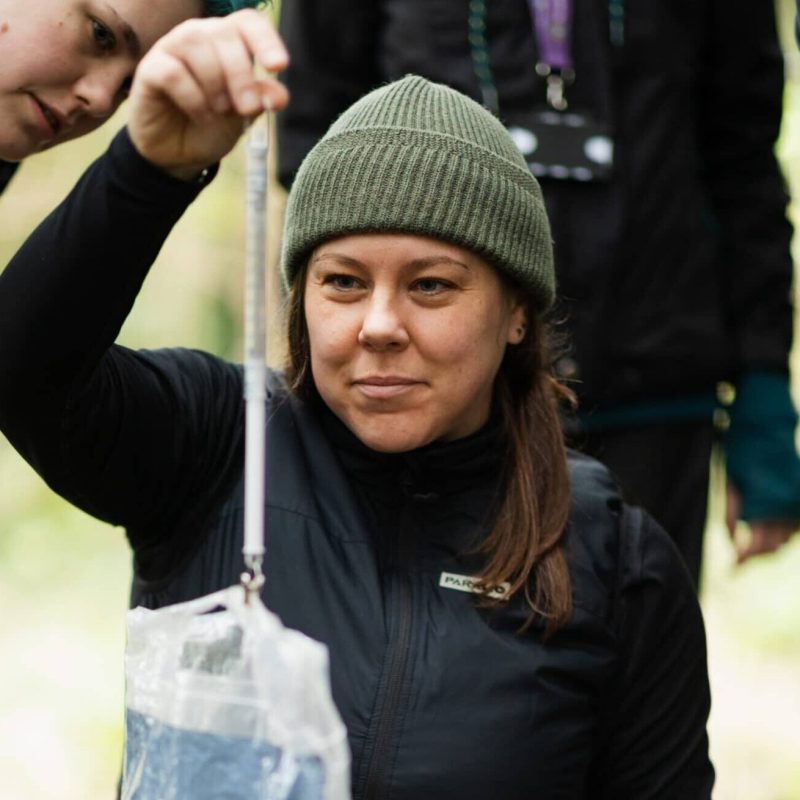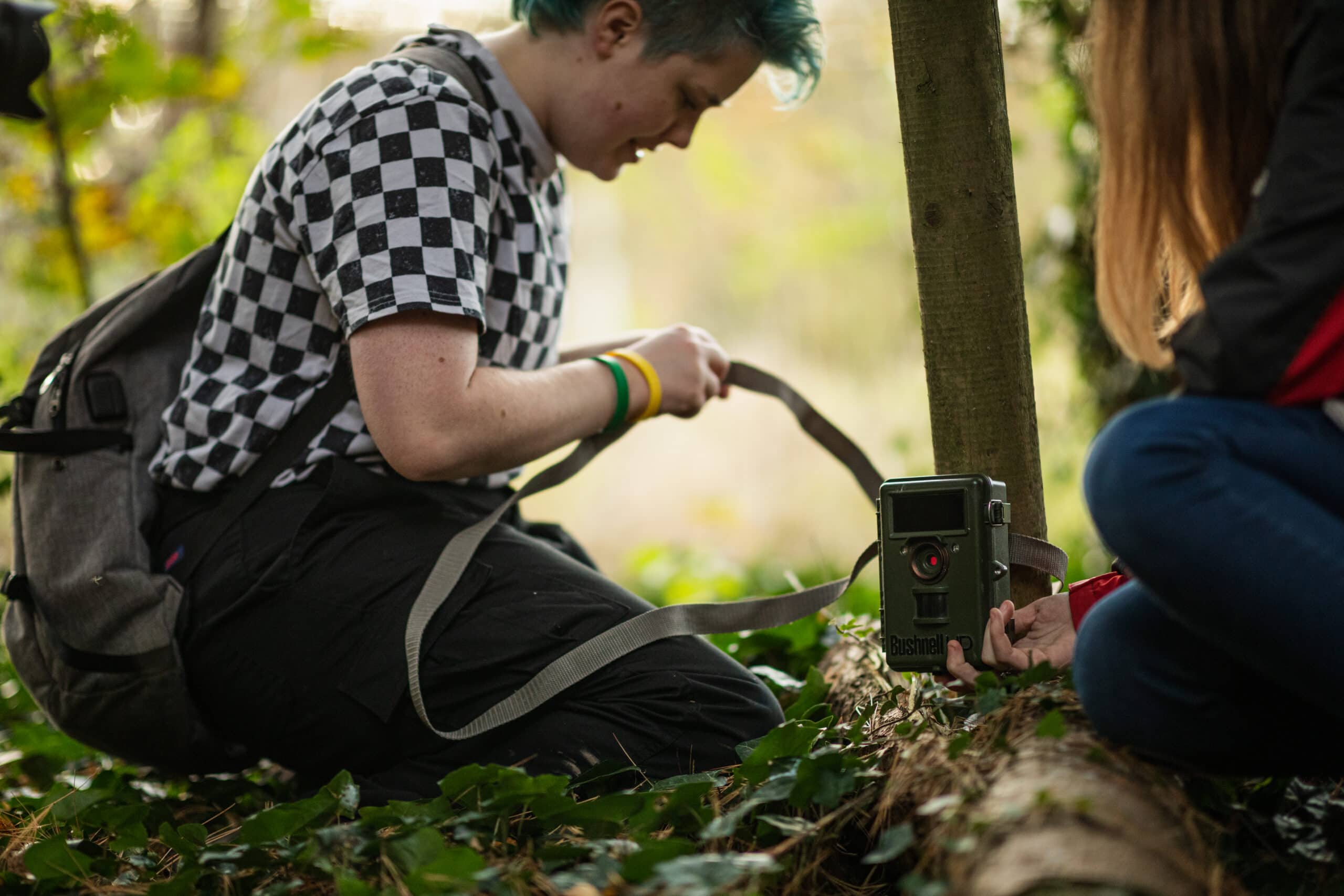We live in a rapidly changing world. If you feel your purpose in life is to safeguard our environment and you have a desire to share your passion with others, we can help you to achieve your goals.
With plenty of hands-on practical management of our stunning 330-hectare campus, this course will provide you with all the industry-focused skills and knowledge you need to ensure you can pursue your passion to make a positive difference to our environment.


This course gives you the unique opportunity to study and research both terrestrial and aquatic habitats. Our Specialist environment and equipment will enable you to develop cutting-edge knowledge and skills in microbiology, limnology, marine ecology, environmental resource management and sustainable leadership.
You will also have the exciting opportunity to do research of your choice, including the chance to design, set up and run your own series of experiments within the discipline of environmental conservation.


The course is comprised of 7 Modules all at 15 credits (with the exception of the dissertation module, which is a double credit module at 30 credits).
Successful completion of an FdSc programme (or equivalent qualification).
Your overall workload consists of class contact hours, independent learning and assessment activity, plus field trips. The following information gives an indication of how much time you will need to allocate to different activities at each year of the course:
Year 1: 14% of your time is spent in timetabled teaching and learning activity.
Teaching, Learning and Assessment: 170 hours Independent Study: 1030 hours
For the dissertation module you will be given a dissertation supervisor.
Cohort sizes vary and can be up to 15 students. Some modules are taught with other cohorts.
Assessment Methods
Assessments are designed to encourage both academic skills and skills valued in the workplace. They include a combination of coursework and examinations. Coursework may take many forms including: essays, reports, data processing, presentations, academic posters, seminar discussions, interviews, critical reviews, portfolios of evidence and practical competency assessments. The examinations vary, depending on the nature of the module, but may take the form of multiple-choice papers, essays, practical assessments, data handling questions, short answer quizzes, and in class examinations.
The balance of assessment by examination and assessment by coursework depends to some extent on the optional modules you choose. The approximate percentage of the course assessed by coursework is as follows:
Year 1
80% coursework
20% Examinations
(subject to change)
Feedback
Feedback is supplied not only on assignments but also throughout the course in several ways. These include Turnitin, directly from module leaders, through one to one and group tutorials, during lessons and will be both oral or written. The majority of submissions for assessment are made via Turnitin and feedback for coursework is provided within twenty working days after the submission date.
For summative assessments, written feedback will be supported verbally should the student require clarification. Formative assessment feedback will be provided at the time of completion where possible, with more detailed summative feedback for reports.
Students will be able to access course timetables for the academic year in September.
Timetables are subject to change, but most students can expect to spend 3-3.5 days per week on campus.
Tuition Fees
As a student at UCR, you will have two main costs to meet; your tuition fees and living costs.
Our full-time tuition fees for UK and EU students, entering University, can be found on our student finance page. These fees are charged for each academic year of a course and are set by the college annually.
Tuition fees for international students can also be found on our student finance page.
Additional Costs
It is strongly recommended that students have an up-to-date tetanus vaccination record before starting this course.
Reading lists are provided for each module studied and some students chose to purchase key texts.
Equipment Costs
Prices of equipment are subject to change dependent on retailer.
Apply directly through UCAS
Relevant Foundation Degree
September 2022
September 2023
Full-time: 1 year
Here you will find useful information about the services and support available at University Centre Reaseheath. Click to expand each item:
University Centre Reaseheath is committed to providing additional financial support to those who need it. To find out about the bursary schemes available visit the additional financial support pages.
For students to get the best out of their time at University Centre Reaseheath, we must both recognise that we owe obligations to each other. These obligations are set out in our UCR Student Contract. Before you accept an offer of a place at University Centre Reaseheath, it is important that you read these contract conditions. If you are going to be living in Halls of Residence, you will also need to read the Student Accommodation Licence Conditions. Both of these contracts can be found here.
Click here to view the University Centre Reaseheath Student Protection Plan.
All UCR students are given the opportunity to apply for residential accommodation. First year students are guaranteed accommodation and this offer is made to all applicants who live more than a reasonable daily travelling distance from Reaseheath (providing you have applied before the UCAS equal considerations deadline. For full details on our halls of residence visit our accommodation page.
We have a team of dedicated professionals on hand to offer you support. These include our Student Services Team, Inclusive Learning Team, Library and Learning Resources Team and the Reaseheath Careers Service. You can find more information on the support provided at Reaseheath on our support page.
University Centre Reaseheath is proud to welcome international students. For more information, please visit our international students page.